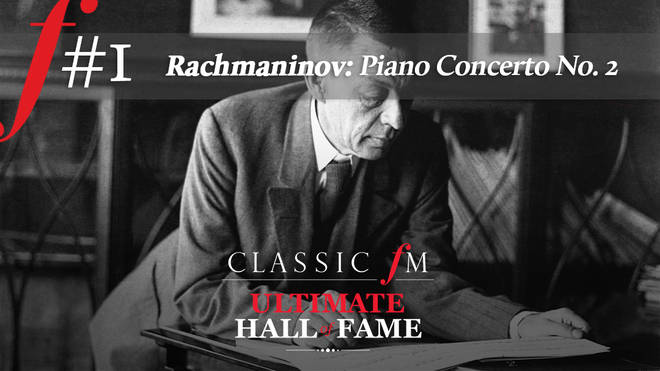Von Rick Fulker, Deutsche Welle
Der Österreicher gilt als einer der bedeutendsten Pianisten des 20. Jahrhunderts. Auch nach dem Ende seiner Konzertkarriere lässt Alfred Brendel aufhorchen.
Im Dezember 2008 verabschiedete sich Alfred Brendel endgültig vom Konzertpodium. "Sechzig Jahre Spielen in der Öffentlichkeit scheint auszureichen", kommentierte er den Schritt damals lapidar - und wünschte sich bescheiden: "Es wäre schön, wenn die eine oder andere meiner Aufnahmen auch in Zukunft ihre Hörer fände."
Kurz danach erlitt er einen massiven Hörsturz. Töne nimmt er seitdem nur noch verzerrt wahr. Er übt nicht mehr. Für einen Berufsmusiker gewiss ein herber Einschnitt. Doch Brendel ließ sich das bis zuletzt nicht anmerken. Er wirkte fit, 15 oder 20 Jahre jünger, als er 2015 für ein Geburtstagsporträt des Zweiten Deutschen Fernsehens (ZDF) vor die Kamera trat. "Die Erscheinung täuscht, aber es könnte schlimmer sein", sagt er da mit funkelnden Augen und einem leichten Schmunzeln: "Ich habe den Eindruck, jetzt könnte ich sterben - aber dann kommt immer noch etwas dazwischen". Zum Beispiel der Echo Klassik. Mit dem renommierten Musikpreis würdigte die Deutsche Phono-Akademie 2016 das Lebenswerk des Ausnahmemusikers.
Seither sind Interviews mit Alfred Brendel selten geworden. Nicht dass er sich stumm zurückgezogen hätte. Noch im Dezember 2015 trat er anlässlich der Internationalen Telekom Beethoven Competition in Bonn auf. Thema seines Vortrags war "Das A bis Z eines Pianisten". Glasklar, launig, weitsichtig, voller Anekdoten und Lebenserfahrung waren seine Gedanken und Einsichten über die Welt der Musik und der Musiker. Und es war klar: Brendel hat nichts von seiner Bühnenpräsenz eingebüßt, sie hat sich nur verändert.
Brendel: "Philosoph am Klavier"
In seinem Sprachduktus spiegelt sich die Spielweise während seiner langen Pianisten-Karriere. Kritiker priesen dessen Leichtigkeit und Souveränität, zugleich spielte er stets präzise und seriös. Als der "Philosoph am Klavier" - hager, lang gewachsen und mit dicker Hornbrille - stellte sich Brendel mit sparsamer Körpersprache und einer Prise Bescheidenheit in den Dienst der Komponisten. Dennoch war er, wie die Londoner Zeitung "The Guardian" lobte, nie der "passive Befehlsempfänger" oder gar, wie die "Süddeutsche Zeitung ihn einmal nannte, ein "Lordsiegelbewahrer der Klassik".
Kein blindes Vertrauen
Im Gegenteil: "Ich fühle mich oft als Charakterdarsteller", erklärte Alfred Brendel 2002 in einem Interview mit der Deutschen Welle. "Ich möchte mich - soweit es geht - verwandeln." Er vertraute also doch nicht blind auf den Notentext, sondern brachte stets seine unverwechselbare künstlerische Individualität mit ins Spiel. Warum das so war, auch darauf gab der Musiker eine mögliche Antwort: "Die Jahre, die ich unter Naziherrschaft verbrachte, haben mich immun gegen blindes Vertrauen gemacht."
Die Töne des Pianisten, die auf Schallplatte und CD festgehalten wurden, sind für Generationen von Musikern und Musikliebhabern prägend. "Musik, die nicht gespielt wird, sondern einfach selbständig geschieht": So beschrieb er die Musizierweise seines Lehrers Edwin Fischer und des von ihm verehrten Dirigenten Wilhelm Furtwängler. Die Beschreibung mag auch für sein eigenes Lebenswerk gelten, das weit über 100 CDs umfasst. Und Brendel wäre nicht Brendel, wenn es nicht auch noch dazu einen launigen Kommentar gäbe: "Jetzt bin ich neugierig, ob man alles wieder so hinterlässt, wie es war."
Kosmopolit auf der Konzertbühne
Geboren wurde Alfred Brendel am 5. Januar 1931 in Nordmähren, seine Geburtsstadt liegt heute in der Tschechischen Republik. Der Junge mit deutschen, österreichischen, italienischen und slawischen Wurzeln wuchs an der Adriaküste im heutigen Kroatien auf. Schule in Zagreb, Studium am Konservatorium in Graz, Umzug nach Wien 1950, Übersiedlung nach London 1970, wo er heute noch zu Hause ist: "Ich bin nicht jemand, der Wurzeln sucht oder braucht", sagte Brendel einmal. "Ich möchte so kosmopolitisch wie möglich sein. Ich ziehe es vor, zahlender Gast zu sein. Das ist eine Lektion, die ich im Krieg gelernt habe."
Erstes Konzert mit 17 Jahren, Gewinn des Busoni-Wettbewerbs in Bozen ein Jahr später, bald jahrzehntelange, weltweite Konzerttätigkeit. Die Ernte dafür fuhr er ein: drei Ehrendoktortitel (an den Universitäten von London, Oxford und Yale), zahlreiche Preise (darunter der "Ernst von Siemens" und der "Herbert von Karajan"-Preis) und Auszeichnungen für sein Lebenswerk bei den "MIDEM Classical Awards" in Cannes, bei den "Edison Awards" in Holland - und im Oktober 2016 beim ECHO Klassik: Das sind nur einige Punkte auf der langen Liste von Auszeichnungen, die Alfred Brendel zuteil wurden.
Neben der erstaunlichen Bühnenproduktivität hat er auch zahlreiche Gedichte und Essays verfasst und Bücher veröffentlicht. Im September 2015 erschien sein neuestes Werk: "Music, Sense and Nonsense" (Musik, Sinn und Unsinn).
Einige wenige Komponisten
Er war und ist ein Künstler mit einem breiten Horizont. Dennoch kristallisierte sich für ihn heraus, mit welchen Komponisten er sich vornehmlich beschäftigen sollte. Als Erster nahm er das komplette Klavierwerk Ludwig van Beethovens auf. Zudem bezeichnete ihn der deutsche Musikkritiker Joachim Kaiser schlicht als "den Schubert-Interpreten seit 1950". Haydn, Mozart, Liszt, Busoni und Brahms gehörten ebenfalls zu seinen Lieblingskomponisten. In späteren Jahren konzentrierte sich Brendel auf nur noch einige wenige, und zwar, aus gutem Grund, wie er im Interview mit der DW 2002 erklärte: "Wenn man die richtigen Stücke spielt, mit denen ein Leben zu verbringen sich lohnt, dann sind das Kraftquellen, die ständig neue Energie aussenden und die Kräfte des Spielers regenerieren."
Alfred Brendel in den 1980-er Jahren
Auch in Sachen, die nichts mit Musik zu tun haben, fand und findet der Künstler Kraft und Erholung: "Für mich war es immer ein Bedürfnis, nicht nur zu lesen, sondern auch zu schreiben", erzählt der Pianist, "Ich habe in jungen Jahren auch eine Zeit lang gemalt. Jetzt ist es für mich immer wichtiger geworden zu schauen. Ich gehe in Museen, Ausstellungen, ins Kino und ins Theater."
Kurz bevor Alfred Brendel am 18. Dezember 2008 mit seinem Sohn, dem Cellisten Adrian Brendel sein letztes öffentliches Konzert gab, hatte der Pianist noch Beethovens Cellosonaten aufgenommen. Beim Klavierwettbewerb im Dezember 2015 in Bonn gab er allen angehenden Pianisten einen Tipp: "Ihr sollt Kompositionsunterricht nehmen und selber komponieren." Nur so könne man verstehen, wie ein Werk von Anfang bis Ende durchdacht wird. Bis zuletzt reiste Brendel durch die Welt, hielt Vorträge zu musikhistorischen und philosophischen Themen, las aus seinen inzwischen elf Büchern oder trug eigene Gedichte vor.
90. Geburtstag in London
Seit den 1970er Jahren lebt der in zweiter Ehe verheirate Familienvater in London. "Wien war damals provinziell. Ich sehnte mich nach einer großen lebendigen Stadt", verriet er der Nachrichtenagentur dpa. Hier hatte er sich und seiner Familie im Stadtteil Hampstead ein Häuschen eingerichtet. Gefüllt ist es inzwischen nicht nur mit Musikalia, sondern auch mit jeder Menge Bildern, Büchern, Schallplatten, kurz: Zeugnissen eines überreichen Musikerlebens. Dort feiert Alfred Brendel nun seinen 90. Geburtstag.







